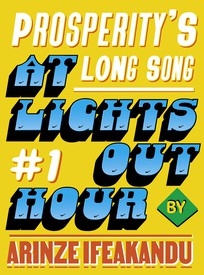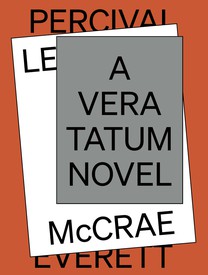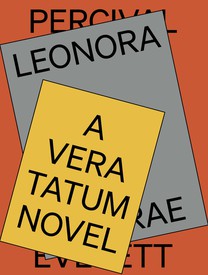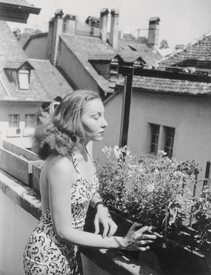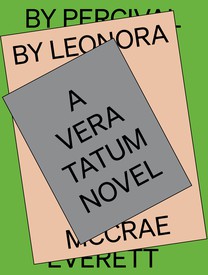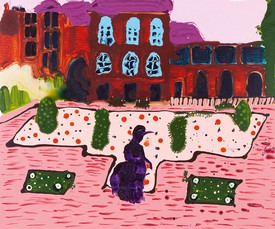
Mathapelo Mofokeng is a screenwriter and author from Johannesburg. In 2018 she completed an MA in scriptwriting at Goldsmiths, University of London, after winning the Chevening Scholarship. Her short films have screened at BFI Soul Connect, Underwire, London Shorts, Aesthetica, and other venues. Her short-story and essay publications include adda, Popshot Quarterly, and Goldsmiths Press. In 2021 she was awarded the pen America Robert J. Dau Short Story Prize and was long-listed for the Commonwealth Short Story Prize.
The day had progressed in its usual disappointing way. It was evening, and Sesi’s bedroom was dimly lit before Palesa entered and switched on the bedside lamp. Palesa could tell that her mother felt disappointed that it was not Mosela, her youngest daughter, whom the light revealed. As Palesa gently laid the night’s meal on her mother’s lap, she noticed just how small Sesi had become on the queen-sized bed she once filled. Without looking at the chicken broth before her, Sesi strapped the oxygen mask over her face until it fit snugly over her nose and mouth, then turned her head to the wall.
Turning her head to the wall had become Sesi’s way of refusing most things: calls from the family, changing her nightclothes, visitations from the church, and even suggested walks around the garden to which she had devoted countless years. Sesi had moved the family to an agricultural town to start a poultry business when Palesa was only a toddler. Kroonstad’s open fields offered endless possibilities compared to her home city, Johannesburg, which was filled with steel skyscrapers but offered no job advancements. The six-feet-tall sunflowers that decorated the garden were what had caught Sesi’s eye that summer, forty or so years ago, when she was scouting the area for a home. She had made the purchase at once, using up the savings she had made from her receptionist salary.
It had been three nights since Mosela had returned to her university in America and three nights since her mother had stopped eating. When Palesa asked Sesi whether her loss of appetite was linked to Mosela’s departure, she claimed that it had nothing to do with her youngest daughter’s going away, but rather with a fear of exposing her ulcer-lined stomach to the new food Palesa served. Of course Palesa understood her mother’s growing reluctance to eat in the changing face of her ulcers, but the chicken broth wasn’t anything new or fancy. Chickens had roamed the yard since long before she worked to earn her mother’s love, and her culinary abilities had only ever extended as far as boiling.
“Are you in any pain right now, Ma?”
Sesi’s gaze remained firmly fixed on the wall, though she faintly shook her head. Palesa noticed the dandruff on the back of her mother’s shoulders. She couldn’t quite put her finger on it, but the house had been unusually quiet that day. So quiet that she could hear herself pulling in the air that had been dried out by the heater. “Do you think you could at least try tonight?” she asked.
Sesi merely studied a moth floating in the small bowl of water placed next to the heater.
Palesa wondered what her mother was thinking about. Sesi hadn’t seemed to care for the moth earlier when it circled the lightbulb above her head, but now she seemed very preoccupied by its death.
“Fine,” Palesa said, with barely concealed defeat. She lifted the tray from her mother’s lap, switched off the light, and began to shut the door behind her but paused and turned back.
“It’s just that when you refuse to eat, I don’t know what to do and it leaves me feeling bad,” Palesa said into the darkness, “and stressed.”
She imagined her mother’s head still turned to the wall, unconcerned.
“If you continue like this, I’m going to have to call Mosela to let her know.”
“No, don’t. Don’t do that,” Sesi ordered. “It will only worry her.”
“It worries me!”
“Yes, but what use is it worrying someone thousands of kilometers away?”
Palesa wondered why she couldn’t be afforded the same regard. She had moved back to her childhood home seven months ago and reduced her work days to care for her mother.
Mama, you ungrateful bitch.
Then, out of the darkness, casually and clear as a bell, “Kea ho rata,” Palesa heard.
It could be that Sesi surprised herself too, because following her words, she chuckled.
Love or laughter, Mama?
Games.
Palesa shut the door, confused.
Palesa walked on the outer edges of her feet to avoid the cold of the kitchen tiles. Most of them were either cracked or missing. The upkeep of the house had stopped when the market for live chickens declined—sixteen years ago. Above her the ceiling was stained and sagging, and around her the paint was peeling, though she had given the walls a dust earlier. Palesa created space in the fridge for the broth her mother had refused. She moved the plate of pap and morogo that Sesi had declined for lunch to the upper shelf, shoved the bowl of motogo that she had turned down for breakfast to the back, and as she combined that evening’s broth with that of the previous night, it struck her that the reason the house had felt strangely quiet was because her mother’s persistent cough had grown silent. The cough had initially invaded their home to condemn Sesi when she smoked, but soon it persecuted her for the simplest of things: a sip of water, a change in sleeping position, a breath, a word, a stretch, a yawn—until it intimidated Sesi into doing nothing. How long had she failed to notice the absence of her mother’s chronic cough? She shut the fridge door but it bounced back open from all the food Sesi had turned away.
Lying in her bed, Palesa told herself that she’d done her best for the day. She thought about tomorrow and the little battles it held; how she would broach the subject of bathing, whether she would be allowed to refill the oxygen tank without a prescription, and what time she ought to wake up to repack the fridge. Her thoughts wandered back to the events of the day. Repeating her mother’s unexpected “I love you” in her head, she quietly laughed. It had been a long time since she had laughed. Even longer since her mother had said those words. Palesa felt guilty for not noticing the absence of her mother’s cough sooner. Her fatigue hadn’t kept her from paying attention to the slightest change in Sesi’s condition before. It was embarrassing that she hadn’t noted the departure of what had been the loudest symptom of them all. She concluded that the cough must have left on the same night and in the same manner as her sister had: three nights ago, tiptoeing out with minimal luggage to another place it called home. Defeat from her mother’s refusal to eat engulfed her again, but before she could remind herself that she could only do so much, Palesa was back in the kitchen.
She pulled the container of broth from the fridge and dug a fork into the savory liquid, scooping up the chicken pieces that still clung to the bone. She laid the pieces on a paper towel for the liquid to drain, then cracked four eggs into a bowl and poured flour onto a plate. Palesa opened the cupboard where the spices were stored. The shelf was rough from spices that had spilled onto the surface, and in the cupboard lay a horde of pantry bugs that had died and dried up. She ignored the dirt, leaving it for tomorrow, and reached for the fried-chicken spice mix. She picked up a greasy peanut butter jar full of dark, murky oil with food particles floating in it. She opened the jar and smelt the leftover cooking oil before pouring it into a deep frying pan. The smell of warm reused oil filled the kitchen, and she wondered whether her mother could smell it through the silicone of her oxygen mask. Whether the smell reminded her of a time when her hands were strong enough to loosen the lid of a jar of oil. Whether memories of fried chicken would turn her gaze away from the wall.
Palesa opened the kitchen door to let in some fresh air. She admired how under the moonlight, the sunflowers resembled a gold blanket hanging over the fence that enclosed the yard. Suddenly, a wave of panic swept over her. Summer was concluding and the sunflowers would soon die. She decided that she would not concern herself with the fridge, or Sesi’s dandruff, or any of the other tasks she had set out to do. Tomorrow she would accomplish only one thing: convince her mother to join her in the garden for a warm pot of coffee, fried chicken, and a view of the sunflowers that had lured her into choosing the small quaint house as their home in the first place.
She returned to the stove, but could not remember whether one coated the chicken in flour or in egg first, so she would have to alternate. She dipped the first batch of chicken in the egg, rolled it in the flour mixture, and placed it in the hot oil. She found pleasure in watching the chicken rise to the surface, and seeing its skin turn a crusty golden brown.
The undertaker tried to reassure Palesa that it didn’t matter that Sesi had died on an empty stomach, but she was neither convinced nor consoled by his words. She searched for Sesi’s death file in the bedroom cupboard. Mama, journeying to the unknown on an empty stomach. She moved her mother’s unpaired shoes and boxes of old receipts and found the file at the very back, where Sesi had said it would be. The file was larger than it needed to be and most of the information was outdated. It held paperwork of bank accounts Palesa knew her mother had closed, policies that had long lapsed, and a contact list made up of home rather than mobile numbers. Only on a few occasions, in passing, had Sesi mentioned the file to Palesa, saying little more than that it held all the information they would need in the event of her death. This was years ago, long before she fell ill.
After the diagnosis of her lung condition, there had been no mention of death again, but a month before Sesi passed away, she had asked to be driven to the shopping center on the corner of Kliprivier and Dingaan Road. Palesa was reluctant to take her mother to the shopping complex; the drive to the remote industrial area was two hours long, the roads were bad, and the center was frankly useless—supplying things that households needed once off or never, like instant lawn and concrete blocks. Still, Sesi had insisted that they go. On arrival, Palesa had watched her mother climb out of the car and then had followed her past the shop where they had once bought wire mesh for the chicken fence, just next to where the boerewors sausage stall used to be. Sesi had stopped and stood quietly at the doorway of a shop called Granite Tombstones CC. She had stared into the shop for what felt like an eternity to Palesa, but moved no farther than the entrance. Palesa would always remember the way her mother staggered back to the car that day.
There was no letter in the file describing Sesi’s desired funeral arrangements, so the order of the grieving process was largely shaped by traditional customs imposed by Mosela. “The process will follow a decolonized, no-shortcuts approach. Going back to how burials took place for BaSotho.” That was how she described it to Palesa shortly after she returned home for their mother’s burial. Flimsy, superficial, irrelevant were Palesa’s quiet opinions of these out-of-nowhere customs her sister was dictating. Though they did come from somewhere: Mosela was completing her PhD in African Languages, Cultures, and Customs at university and had an ancestry of textbooks to pull these customs from—customs that she would now introduce to Palesa since their mother had failed to, or forgotten to, or had never known.
One of the customs Mosela set in motion after the burial was the ceremonial washing of clothes, a ritual where their mother’s clothes were to be spread across her bedroom floor beside a candle. On the tenth sunset after their mother’s funeral, her clothes would be thoroughly washed, prayed over, and passed down to relatives. You could just lay the clothes on the bed. But Palesa did not dare to say this out loud as she watched Mosela spread their mother’s clothing on the floor. Looking at the bed, Palesa remembered how small her mother’s body looked against it. Mama, now resting in the ground with a casket as your nightgown.
During the first night of the custom, Palesa blew out the candles and an artificial light shone from the ceiling over their mother’s clothes.
“Lazy at tradition!” Mosela responded, “A victim of internalized racism is what you are.”
“Candles are a fire hazard, Mosela.”
“The lighting is cold. It’s brutal, and it’s not how the custom is practiced.”
“I’ll replace it with a warmer lightbulb.”
“That in itself is a refusal to do the work.”
What work? Palesa thought. She was the one who had done the work of caring for their mother.
Mama. No longer here to resolve our fights.
“Ignorant, unbothered, oppressed!” Mosela continued.
Practical. Busy. Too tired.
This is how their disputes unfolded each night.
On the sixth night, Mosela’s university colleague in Washington, DC called regarding what Mosela said was “something of high priority.” There would be a slight change to the custom and an earlier departure.
Three months passed and Palesa remained at her mother’s house for no reason other than to clear it in preparation for its sale, or so she told herself. She had taken extended unpaid bereavement leave because she needed the time to heal, but the hands of the wall clocks spun only in the direction of sorrow. Nights were kinder, offering her a temporary reprieve from her loss, but after the brief disorientation of the first seconds of each morning, memory would descend and she would open her eyes, obligated to remember.
She spent her days lost in the past as her fingers combed through her mother’s possessions, sorting through the fabrics of curtains, digging through boxes of jewelry, and disposing of years of unused and expired medication. She refused to throw out the bouquet of dead flowers that sat in her mother’s room. They had retained a rare pink that Palesa cherished and released a light fragrance that disguised the lingering tobacco smell of Peter Stuyvesant, the murderous lover her mother could not walk away from. One morning, soon after she had moved back in to take care of her mother, Palesa had been cleaning Sesi’s room and while emptying the bin, she opened a tissue her mother had coughed into and found blood-streaked phlegm. Palesa didn’t dare raise the issue of a beaten lung with her mother, or tell her to leave the cigarette—not when she, too, had been covering the blows on her face from her own abusive lover at the time, Tau.
She picked up her mother’s floral devotional notebook, which Sesi had used for as long as Palesa could remember. It had Wisdom of Women proclaimed in cursive across the cover, and inscribed on each page were inspirational readings and scripture verses. Palesa paged through it. The few entries her mother had made related to her sobriety. She suspected that the book was bought during the time her mother gave up drinking, when Palesa was just an infant. As she continued flipping through the pages, she stumbled across an old lottery ticket and remembered a time when her mother believed the odds of winning the lotto seemed greater than acquiring government support to keep the poultry business afloat. Despite the need for money, Sesi’s gambling days were short-lived, something about it not aligning with sobriety, cross-addiction, and it “not being worth it.” Mama, now without the worries of money.
Her mother’s chosen numbers, 1, 3, 6, 7, 10, and 89, appeared faintly on the worn-out ticket. Palesa guessed that the number 3 stood for three daughters, one deceased or miscarried. 7, because Sesi liked that it rhymes with heaven (she had even started the business off with seven chickens). 6 and 10, unquestionably for the 10th of June, her sobriety date. But the 1 and 89 were a mystery to Palesa, who now felt unsettled at not being able to guess what the other two numbers might have meant to her mother. She didn’t know why she cared to uncover what each number represented, nor what she was hoping to find in the journal.
What could her mother’s journal of grocery lists and contact numbers reveal? A miracle letter, perhaps; one that described a painless, peaceful death. A letter that would assure her that Sesi had not been afraid, that she preferred to be alone, with no one beside her to hold her hand during the moment of her death. One that confirmed the exact time of her death to rule out a thought that had troubled Palesa since the morning she had found her mother dead: the evening before, once Palesa had returned to bed after frying the chicken, she had struggled to fall asleep and turned to the remedy of pornography to relax her mind. She had worn earphones to prevent Sesi from hearing the filthy sounds, but now wondered if the two or three minutes of high humming and the drawn out “fuck” from the actress may have drowned out the sounds of her mother calling for help in her dying moments. Palesa wanted a letter that would beg her to have no regrets, to feel no guilt, with the confession “I was only pulling your leg about your cooking” tucked between her words. One that would assure Palesa that on that final evening when her mother said “I love you” out of the darkness, she had meant it.
Palesa had spent every day since her mother’s death reliving that final evening. She would replay the memory in a variety of hues and at varying speeds. When a moment felt like it was getting lost, she would squeeze her eyes, freeze the moment, fill it with neon colors and boost the volume so that it wouldn’t get lost again. On some days, she would remember details that she had initially paid little attention to. A coffee ring on the side table that she had planned to wipe down the following day. The sounds of an argument coming from the neighbors whose dairy farm stayed afloat while their marriage went under. A unique lethargy to Sesi’s movements that evening. All of that now formed part of the fabric of the story. She would turn over every detail, squeezing her eyes until they hurt, but each time, the invasive and unwelcome sound of her mother’s laugh would vibrate in her ears and haunt her. Palesa wished that she could erase it from her mind. The simple chuckle that had robbed her of the certainty of her mother’s love.
Palesa picked up a pen and on an empty page in the journal began drawing absentmindedly. Smooth curved lines ran along the page, and when an emotion felt heavy, she pressed her pen down hard on the page so that it tore. When it felt bearable again, soft strokes and lines crossed the page until the figure of her mother’s sickly body formed. She remembered how the skin on Sesi’s buttocks had sagged in her last days, but she drew them firm. Drawing them any other way would have felt disrespectful. Palesa tore the page out of the notebook and crumpled it in her hand. A notification pinged on her phone.
Oh fuck off, Palesa thought when she saw that it was an Instagram DM from Mosela. A rush of shame surfaced. Since her mother was now dead, Palesa knew that Sesi was omnipresent and could hear all her harsh thoughts. A guardian angel. Hers—though she did have her doubts. Sesi would have had to have chosen Palesa over Mosela when asked which daughter she would guide and protect, and that felt beyond the bounds of possibility. But who knew? The ways of guardian angels were a mystery.
At the funeral, relatives dressed in black—charcoal black, navy black, every shade of black—had expressed their admiration for the care Palesa had shown her mother during her final days. “Not many people could do what you did,” a distant cousin, who wore raisin black, said. “She looks down on you with pride and gratitude, and says she’ll be your guardian angel. Well, at least for now,” she concluded, her head bowed and hands placed on her heart.
How long “now” would be became a question Palesa dwelled on. She fixated on the terms and conditions of “now,” and how much time would need to lapse until “now” was no longer. She worried that “now” was bound to space. Her mother’s house, perhaps? And if she left and returned to work, would “now” conclude? For all she knew, “now” could be bound to a feeling, relevant only when a heaviness in her heart persisted. But what if “now” was jealous? Petty? Would “now” resolve when pleasurable feelings surfaced in her grieving heart? What about the unwelcome thoughts of Tau? Tau. Tau with the broad shoulders. Would her guardian angel and mother leave her due to her recent longings for the woman-beater? Lover. Bastard. Would she abandon her for the nerve of feeling something other than grief?
As Palesa scrolled through Mosela’s Instagram page—the only contact she’d had with her sister since her departure—she contemplated the presence of her guardian angel. After the exchange at the funeral with her distant cousin who wore raisin black, trivial things had beamed with meaning and Palesa had found herself consumed by the everyday messages that she thought were being sent by her mother. A coin she had found in a magazine as she was paging through signified permission to take an unpaid extended bereavement leave from work, a promise that she would be provided for. A forgotten love song on the radio was an assurance that hers, too, would soon come if only she were patient. The scent of the cheap perfume Sesi had used to mask the smell of her own incontinence (the illness had reduced her to a child) had been proof to Palesa that Sesi was in the room with her. But of late, her mother’s presence had quietened, as if she had turned her gaze away, much as she was prone to when she was still alive.
Palesa didn’t know why she continued scrolling through her sister’s unappealing life. The cold weather, the protests, the always-on-the-go, the needing-to-prove-a-point and the standing-for-something, were everything she didn’t desire. Palesa believed her mother had shared the same feelings. After Mosela had completed her MA, she had purchased a ticket for her mother to visit the US for a couple of weeks. “It will be a chance for you to see my life here,” Mosela said to Sesi, who had agreed, then later refused, claiming that she had no one to tend to her garden. Palesa asked herself if her mother had now yielded to the invite. She read Mosela’s message.
[Been thinking about you. Sending you love.]
[hey, how r u?] Palesa responded.
[I’m good. Thanks for asking. I’ve been meaning to reach out to you actually.]
Typing . . .
Palesa already regretted the exchange. Mosela’s refusal to use textspeak was one of the behaviors she had adopted since moving to America to further her education. This came along with her decision to explore dating both men and women, which also bothered her older sister.
[Something wild happened last week.]
[mhm?]
Typing . . .
[So Veronique and I decided to head out for a walk. It was freezing, but I needed to step away from my thesis and catch some air. Remember the brooch Mama used to wear?]
[Da floral 1?]
[No, her favorite one. The one I hated. It had a portrait of a white man from some centuries ago, and each time Mama would wear it I’d scold her for pinning a white man to her breast.]
[Oh ja, I rememba.]
[Right. So while out on our walk, Veronique brings my attention to an oddly shaped cloud in the sky. I look up to see, and Palesa, I kid you not, it’s him! The man from the brooch!]
Typing . . .
[Every detail! Right down to the scarf around his neck.]
Typing . . .
[I just knew it.]
Typing . . .
[I just knew it was her! LOL. I’ve never been happier to celebrate a white man than at that moment.]
[Kwl.]
[Just cool?]
[I mean it’s just insulting dat she wld send signals 2 a daughta dat suggested she be placed in a hospice.]
[There you go again.]
Typing . . .
[Mama was open to being placed in a hospice. You chose to be a martyr.]
Typing . . .
[Besides, wasn’t it you that said you felt some relief at not having to care for her any longer?]
[No! I wld neva say dat. I said dat I was sleeping beta, but I ddn’t say anythin abt relief.]
[My bad. Veronique says hi, by the way.]
She imagined the tone of Veronique’s “hi” to be smug. All-knowing and patronizing. The tone of a girlfriend who thinks she knows the full story, a story that began in ’89, when Palesa gave up her mother’s breast to Mosela, “the tail in the family,” as her name meant. Many sacrifices had followed after the birth of her younger sister, and Palesa had quickly advanced from daughter to peer to coparent. From a young age, she had been exposed to the stresses of her mother, watching her emotionally crumble while facing bankruptcy. Between bouncing from one toxic love interest to another, her mother would sob profusely in her arms and during one of her meltdowns, she remarked on Palesa’s maturity when her daughter didn’t wipe her snot off her collarbone. By the time Sesi died, she had long forgotten just how young Palesa was in relation to her. Palesa wished that her mother could have spared her from experiencing just one thing, though: discovering her stiffened dead body that morning. Something three-chinned Veronique could never understand.
[Tell her I say hi bck]
[Are you back at your place yet, by the way?]
[No. Keepin an eye on da house. I’ve been thinkin bout those boys who hang out around da corner. Dey hav 2 much time on their hands, and I’m afraid dey goin to take advantage of da situation.]
[And that’s not something the agents can attend to?]
[Havn’t askd. Question, did u talk 2 Dikeledi durin da funeral?]
[No, why?]
[Well I had a convo with her durin da funeral. Long story short, she approached me, told me Mama had spoken to her, and dat Mama wld be my guardian angel.]
[Surprised face emoji, Wow.]
[And I just can’t help but b annoyd at ur story abt da cloud. It’s so typical of Mama to break a promise, or take pity on u. Even in death.]
[Hold on. You don’t think she’d watch over us both?]
Typing . . .
[LOL. Palesa.]
Typing . . .
[This is ridiculous.]
Typing . . .
[Look. I can’t tell you much about guardians and angels. But if I were you, I wouldn’t depend on the spiritual insights from a cultural slut.]
The cultural slut was Dikeledi, who, much to Mosela’s disapproval over the years, had dabbled in Hinduism, Celtic spirituality, Yoruba beliefs, and was now following astrology and psychic practice.
[And furthermore, I definitely wouldn’t allow her words to create a fight between us.]
Typing . . .
[All I know is that since that day, I have felt Mama’s presence. It’s strong and undeniable and I will not be made to feel bad for that.]
Typing . . .
[She loved us both.]
Typing . . .
[Loves us both. In life and death.]
Lying on her mother’s bed, Palesa turned her head toward the wall Sesi had looked at and pulled in slow deep breaths as her mother had. “Kea ho rata,” Palesa said. She repeated the words to herself over and over until she mastered the lisp her mother had spoken the words with. She so wished she’d stayed in the room longer to know more. Dammit. She should have. The room was dark and had offered them both the chance to stand in the discomfort of being bare without being exposed.
[Equally tho?] Palesa responded.
Typing . . .
[Yes, equally. She split her possessions in half. Right down to the flowerbed.]
Typing . . .
[Your perception has always been skewed. At some point, you are going to have to let go of this narrative. It’s getting old and boring, Palesa. And I’m no longer willing to listen to it.]
Typing . . .
[You should strongly consider grief counseling.]
Typing . . .
[And therapy for the other stuff.]
Typing . . .
Palesa switched off her phone and tucked it under the pillow. It was clear “now” had concluded and her mother would be with her sister. She shut her mother’s devotional journal and headed out of the house for some air.
Lightheaded, Palesa sat on the stoep of her mother’s yard and facing her were the sunflowers, which remained in full bloom. Her mother had left too soon and the flowers had lingered too long. It was autumn; they ought to have died by now. Stupid flowers. Palesa watched the children from the house next door prepare a goat for slaughter. She lit and inhaled her mother’s favorite brand of cigarette. Exhaling, she felt furious that the smoke could still rise up at a time like this. She watched the children swiftly slice a sharp knife across the animal’s throat. Must be nice, she thought, as the goat convulsed violently, its blood spraying on the faces of the children, to be denied of tomorrow. She put out the cigarette, and went back inside.
For the 2021 fiction section of the Gagosian Quarterly we have teamed up with PEN America to highlight a selection of writers from PEN’s advocacy and literary programs. Founded in 1922, PEN America is part of an international network dedicated to fostering freedom of expression through numerous initiatives at the intersection of literature and human rights.
This final installment of the series presents PEN America Dau Prize–winner Mathapelo Mofokeng. The PEN/Robert J. Dau Short Story Prize for Emerging Writers recognizes twelve emerging writers each year for their debut short story published in a literary magazine, journal, or cultural website, and aims to support the launch of their careers as fiction writers.
To learn more about PEN America Literary Awards and the rest of PEN’s work, please visit pen.org.
Text © Mathapelo Mofokeng
